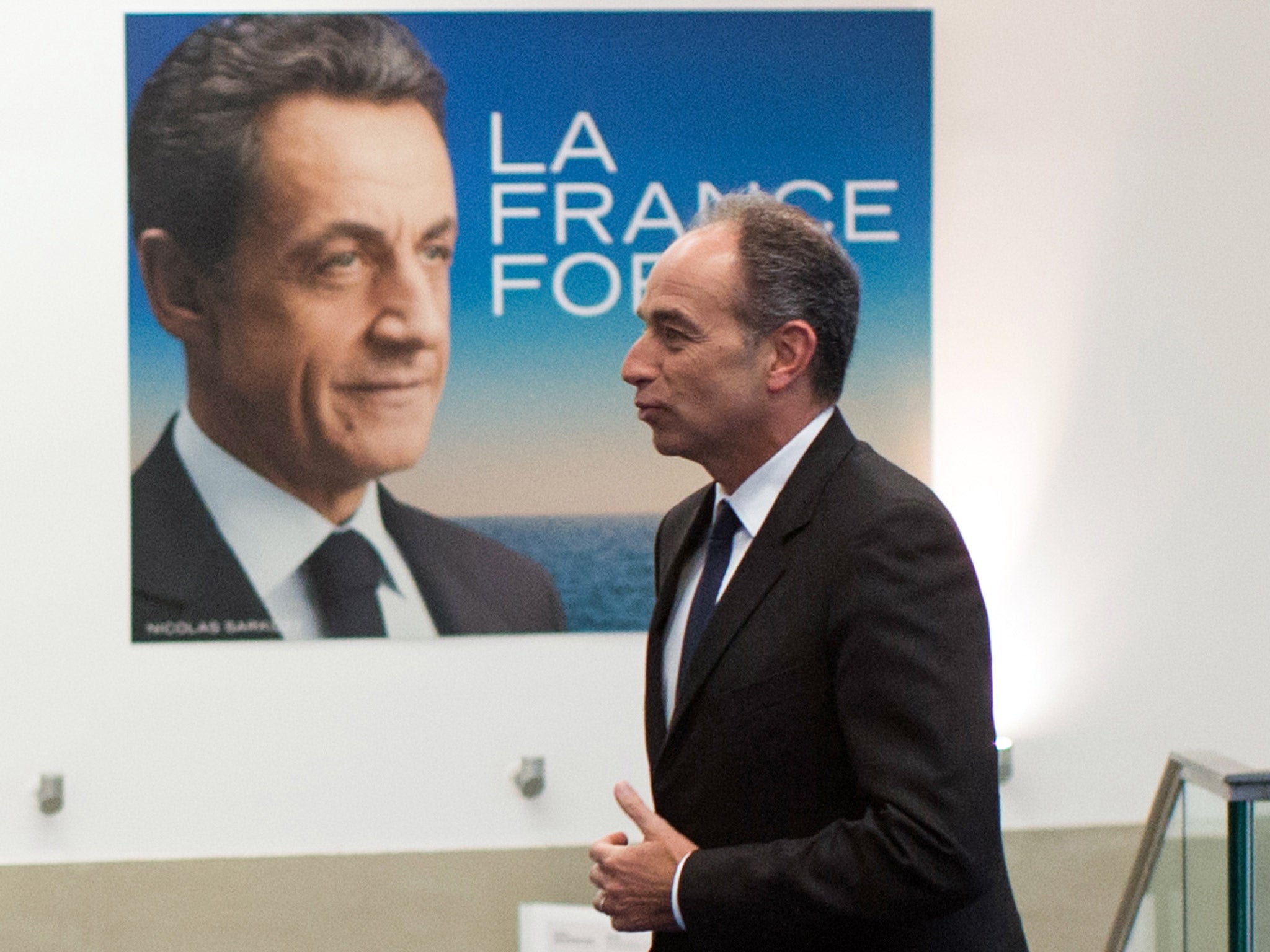Nicolas Sarkozy’s 2017 comeback in jeopardy as fraud scandal forces opposition party leader Jean-François Copé to quit
A close aide has claimed the former President’s 2012 campaign accounts were falsified

Nicolas Sarkozy’s 2012 presidential election campaign falsified accounts to allow it spend twice as much as its rivals, it was alleged on Tuesday.
The scandal has now come close to destroying the main centre-right party, the Union pour un Mouvement Populaire (UMP), forcing the acrimonious resignation of its leader, Jean-François Copé, yesterday.
The allegations – confirmed in a tearful TV interview by the deputy head of Mr Sarkozy’s campaign – cast serious doubts on the former President’s chances of making a political come-back in 2017.
Candidates in the 2012 presidential election were allowed to spend a maximum of €22.5m (£18.24) under French electoral law. Mr Sarkozy’s campaign, it is now alleged, spent at least €33.5m – and maybe as much as €47.5m. Bills were faked to transfer the surplus spending to the UMP.
Following the victory of the far right in the European elections at the weekend, a whirlwind of events yesterday created a sense of national crisis – what one left-wing politician called an atmosphere of “fin de régime”.
Detectives raided the offices of the UMP, the main opposition party to President François Hollande’s Socialist Party. A senior party official and former aide to Mr Sarkozy, Jérome Lavrilleux, confessed on live TV to the faking of campaign accounts. The UMP narrowly avoided implosion by forcing the mass resignation of its leadership.
The Front National leader, Marine Le Pen, joyfully seized on the scandal to return to a favourite theme – the alleged selfishness and corruption of French mainstream politicians. She accused Mr Sarkozy of “stealing” his second-place finish in the first round of the 2012 elections. “This shows that [he] betrayed democracy and betrayed the rules of our Republic,” Ms Le Pen said. “I want the French to know that Mr Sarkozy cheated.”
Friends of Mr Sarkozy insisted that any falsification of 2012 campaign spending accounts had been carried out without his knowledge. They said that he was “very unhappy” his name was being attached to the scandal.
Opposition politicians – and even some UMP sources – said that it was implausible that such a hyperactive man as Mr Sarkozy did not know that his campaign was overspending the €22.5m legal limit by such a wide margin.
Mr Lavrilleux, deputy head of Mr Sarkozy’s 2012 campaign, admitted tearfully in a TV interview on Monday that fake bills for many of Mr Sarkozy’s campaign events had been paid by the UMP. “It’s not possible to run a campaign on €22.5m,” he said.
At least €11m – and perhaps €25m – of extra campaign expenditure was “laundered” in this way, according to leaks from a criminal investigation into “forgery” and “abuse of confidence”.
Mr Sarkozy’s campaign was already found guilty in 2013 of exceeding the legal limit by around €1.6m. As a result, the UMP was stripped of its public funding and had to launch a public appeal to avoid bankruptcy.
The new allegations are far more serious. They suggest the Sarkozy campaign knowingly exceeded the legal limit by at least 50 per cent and possibly more than 100 per cent.
Mr Sarkozy is already fighting allegations that his successful 2007 presidential campaign was illegally funded by the former Libyan dictator Muammar Gaddafi. This is just one of a half-dozen allegations of wrong-doing by Mr Sarkozy being investigated by examining magistrates.
The former President insists that the allegations are false and have been drummed up his political enemies, especially by the government of the man who defeated him, President Hollande.
The latest scandal began last February with an allegation that Mr Copé had allowed the party to overspend on doubtful events organised by a company run by his friends. It later emerged that some of these events were fictitious.
At a meeting of the UMP political bureau yesterday, Mr Copé was forced to resign as its president from 15 June.
Subscribe to Independent Premium to bookmark this article
Want to bookmark your favourite articles and stories to read or reference later? Start your Independent Premium subscription today.

Join our commenting forum
Join thought-provoking conversations, follow other Independent readers and see their replies